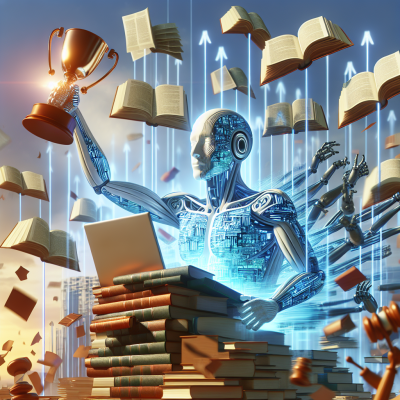
Anthropic Scores a Win in AI Copyright Law
The tension between artificial intelligence innovation and copyright law just reached a new milestone. AI startup Anthropic recently scored a partial victory in a major legal showdown over the use of copyrighted works in training AI models. While this ruling could set a precedent for how AI firms invoke the doctrine of fair use, it also left the door open for further legal action—particularly around the issue of dataset transparency and authors’ rights.
Context: The Growing Legal Pressure on AI Model Training
As AI tools like Anthropic’s Claude and OpenAI’s ChatGPT become increasingly capable, they also come under scrutiny for how they are trained. These large language models (LLMs) absorb massive datasets to learn patterns in human language. Unfortunately, those datasets often include copyrighted materials—everything from news articles and essays to entire books.
Authors and publishers argue that this practice is tantamount to theft. For them, having their work swallowed into an AI model without consent or compensation is a violation of intellectual property rights.
The Fair Use Doctrine in Spotlight
At the heart of this legal debate lies a core question: is using copyrighted content to train AI models a “fair use”?
This month, Anthropic got some good news. A federal judge ruled in its favor, stating that using copyrighted text in AI training might fall under the fair use doctrine, especially when the output serves a transformative or non-commercial purpose.
Why It Matters: This ruling doesn’t end the lawsuits entirely, but it marks a turning point in how courts may treat AI training data under U.S. copyright law. If upheld, it could protect AI firms from massive liabilities and empower more developers to continue training powerful models without seeking precise permissions for every data point.
Why the Victory May Be Short-Lived
Even with the fair use victory, Anthropic still faces serious allegations about “stealing books.” Publishers and literary organizations accuse the company of scraping hundreds of copyrighted books without licenses. Some of these works were allegedly contained in shadowy datasets like “Books3,” which became infamous after being linked to several AI training leaks.
Legal analysts note that the fair use doctrine has its limits. If the courts determine Anthropic used copyrighted books with full texts and no real transformation, the company could still be liable for damages.
Key Takeaways from the Lawsuit:
- Fair Use Ruling: The judge sided with Anthropic on the broader use of copyrighted text under transformative fair use.
- Transparency Lacking: The ruling acknowledged that Anthropic had not shared full transparency on how its training data was sourced, which is still under legal scrutiny.
- Publishers Still Fighting: Major publishing houses are pushing forward with lawsuits, arguing that AI firms unfairly benefit from work they haven’t paid for.
What Comes Next?
While the legal system catches up to technological acceleration, companies like Anthropic, OpenAI, and Meta are in a legal high-wire act. They need gigantic libraries of written content to build smarter models, but the risk of triggering multi-million-dollar lawsuits looms large.
Some analysts suggest that AI firms should proactively license data or adopt more transparent practices. Tech companies, meanwhile, argue that AI systems need broad access to public and quasi-public data to reflect the full scope of human language and knowledge.
Setting the Legal Framework for Generative AI
This case will likely become a reference point for other ongoing copyright battles involving AI. As governments worldwide consider regulating AI more tightly, rulings like this will shape the foundation on which those regulations are built.
Conclusion: A Win with Caveats
While Anthropic celebrates its legal win as a step forward for AI development, it can’t rest easy. The unresolved aspects of the case—especially around book copying—highlight a new frontier in technological ethics and intellectual property.
As more cases pile up and the AI industry seeks clarity, one thing is certain: the clash between innovation and copyright isn’t going away anytime soon.


Leave a Reply